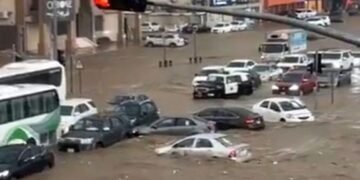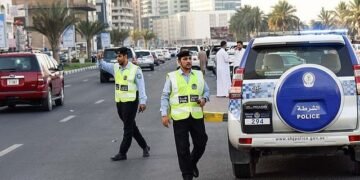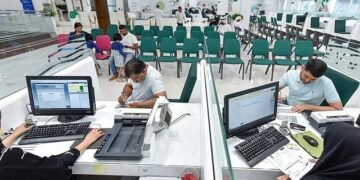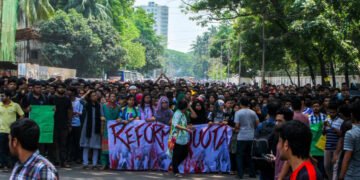WFP deputy executive director Carl Skau spent two days in Gaza this month. “The situation in southern Gaza is quickly deteriorating,” he said.
The humanitarian situation in southern Gaza is “quickly deteriorating” as people have been crammed in a “highly congested area along the beach in the burning summer heat”, the UN said.
Active conflict and lawlessness in the area have made it “near impossible” for the World Food Programme and its partners to meet the surging demand, the UN Office for the Co-ordination of Humanitarian Affairs (Ocha) said in its latest situation report issued on Wednesday.
There is also a critical lack of milk and formula for babies and nutritional supplements for children and pregnant and breastfeeding women, Ocha said.
“Many households report having only one meal every day, with some having one meal every two or three days, relying mostly on bread, food sharing with other families and rationing stocks,” it said.
WFP deputy executive director Carl Skau spent two days in Gaza this month. “The situation in southern Gaza is quickly deteriorating,” he said.
“A million people have been pushed out of Rafah and are trapped in a highly congested area along the beach in the burning summer heat. We drove through rivers of sewage.”
More than one million people have been forced out of the southern city of Rafah since Israel began a ground operation there on May 7, the UN said.
An estimated 60,000 to 75,000 people remain in Al Mawasi area of Rafah and 750 people in Rafah city as of May 17. Displaced Gazans are living in overcrowded makeshift shelters and tents that are in dire need of repair and do not offer any protection from extreme heat, it said.
About 37,400 people have been killed and more than 85,500 have been injured in more than eight months of war between Israel and militants in Gaza, the enclave’s health authorities said.
Medical sources said nine Palestinians were killed in an Israeli strike on southern Gaza Strip as they waited for aid lorries carrying goods through the Karam Abu Salem crossing, Reuters reported on Wedneday.
Meanwhile, a floating pier on Gaza’s coast is expected to resume operations on Thursday, US officials told Reuters.
They said the pier had been reattached to the shore on Wednesday, after being removed last Friday due to poor sea conditions.
Aid deliveries using the US-built pier began on May 17, with the UN saying it allowed about 100 tonnes of supplies to reach warehouses.
Pier operations have been disrupted by rough seas , as well as poor weather and security concerns.
US President Joe Biden announced the plan to build the structure in March as fears grew of famine in Gaza, home to 2.3 million people.
The US military estimated it would cost more than $200 million to operate for the first 90 days and would involve about 1,000 service members. It is unclear how long the pier will be used for aid deliveries.






































































